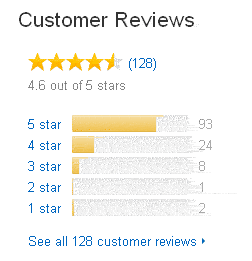Every day approximately seven zillion squillion books are self published. And the world takes absolutely no notice, assuming they are all rubbish. No doubt some of them are. Others, while not rubbish, are likely flawed. But there are also perfectly decent books which are self published.
Embed from Getty ImagesWhy are they self published if they’re so good? There can be a variety of reasons. A publisher invests a deal of time and money into every title they publish. They have their own agendas and criteria to meet, and simply being ‘good’ isn’t necessarily enough. Maybe it’s good, but they can’t see a large market. Maybe it’s good, but similar to titles they already produce. Maybe it’s good, but currently unfashionable. Maybe it’s good – really good – but just not quite as good as those other ten titles that they have decided to publish.
Some authors claim they self publish by choice; they retain control over every stage of the process, and reap far greater profits. Personally I find this doubtful. Sure, you make a greater profit on each sale – but only if people are buying your book. 70% of nothing is still nothing.
The self published author’s greatest challenges are visibility and credibility. No one knows or cares about their book. The only people they can persuade to read it are likely to be friends and family (certainly early on in the process). They would love for a real, objective reviewer to read and blog about it, but without some initial credibility there is little reason for such a person to take a chance on it.
This is where you can help. Those handful of reviews the book manages to garner in its early months are vital. The bottom line is that the more reviews a book receives the greater its credibility. Unquestionably.
But not all reviews are equal. While any review is better than none (yes, even a one star review), there are things you can do which make your review really valuable to the author, and things which make it … less so.
You have the best intentions. You want to help out the author; you certainly don’t want to upset or offend them. So you go write them that review. Here are the top three pitfalls to avoid.
1) Five Stars
You may think the greatest favour you can do the author is to award the book five stars (assuming five is the maximum on whatever platform you are reviewing). Unfortunately nothing screams ‘Self published author with only friends for reviewers’ like a very small number of reviews all awarding five stars.
That is not the natural pattern of reviewing. Go check out any mainstream, popular book. It will have 1, 2, 3, 4 and 5 star reviews. It will have a range, maybe a bell curve, with most of the reviews clustering around four or five stars. Even a work of renowned genius does not garner uniformly five star reviews. It doesn’t garner uniform reviews at all. People have different opinions about it, and they don’t all think they’d better give it the same number of stars as the last person, so that they don’t look stingy.
Keep it realistic. Honestly.
2) I don’t usually read this genre…
‘I don’t normally read sci-fi/children’s books/romances, but this had me captivated from the beginning.’ You might think you’re saying, ‘Read this! It’s brilliant! Even if you think you don’t like the genre. Honest. It’s fantastic.’ But what you’re actually saying is, ‘The only reason I read this book is because the author is a friend, and asked me to.’
3) Boris has done a fantastic job
So the author is your brother, your old school pal, your work colleague. Maybe you don’t know anyone else who’s written a book. It’s pretty cool, right? Referring to the author by their first name subtley lets the world know that you personally know them. You, by association, are pretty cool too.
Or not. Again, what you are really saying is, ‘I only read this book because I know the author.’ It might be true, but it damages their credibility.
Similarly, if you happen to have the same surname as the author, maybe this is the one circumstance where ‘any review at all’ is NOT better than none :-S
If you can avoid those three pitfalls then your review could really help your author pal. So that’s what not to do. But what should you do?
Be honest
Embed from Getty ImagesI know you don’t want to offend Boris, and really he has done awfully well, and you’re proud of him, but that bit in the middle with the elephant and the volcano didn’t entirely make sense, did it? The plot got a bit confusing around the time the mermen turned up through the oceanic rift, and come to think of it, the comedy sidekick otter was actually a bit irritating.
It’s okay to say that. I know you don’t believe me, so I’m going to say it again:
It’s okay to criticise your friend’s book!
Say that it’s interesting, say that it’s funny, say that you enjoyed it* – just don’t be afraid to also say, “But…” And don’t be afraid to deduct stars accordingly. Your author pal will thank you in the long run. Hopefully, if they have a bit of realism about their situation, they will thank you immediately.
Your friend has most likely spent years writing their book. They’ve put off social events, missed playing with the kids, maybe they’ve taken time off work, with the accompanying loss in earnings. They are serious about writing books and making a success of it. Patting them on the head and saying, ‘well done, that’s brilliant’ doesn’t help them. If there are areas they need to improve on then tell them. They want to get it right. They want to improve. But if no one tells them where they’re going wrong, how will they ever get better? Meanwhile, they are sitting scratching their heads, thinking, ‘if my book is so damn fantastic, how come I’ve only sold 20 copies..?’
In conclusion, you can help your author pal with their two main problems of visibility and credibility. You help with their visibility simply by writing any review at all. You can help with their credibility by reviewing their book as though it was written by someone you don’t know; by being honest, by pointing out flaws.
With a small range of honest reviews their book stands a far greater chance of being taken seriously by other readers and reviewers than if it only has a handful of glowing, five star reviews.
On behalf of all self publishing authors, thank you for taking the time to read this – and for every review you write for self published authors. It really does help.
Other authors, do you agree with this article? What would you add to the list of review pitfalls?
* assuming those things are true.



